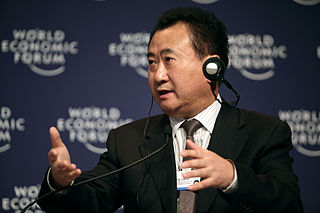A Quote by Eric Yuan
Similar to many multinational technology companies, Zoom has operations and employees in China. And like many multinational technology companies, our offices in China are operated by subsidiaries of the U.S. parent company. Our engineers are employed through these subsidiaries. We don't hide this.
Related Quotes
If you talk privately to our tech companies, our pharmaceutical companies, our high-end manufacturing companies, the high end of America, where the good-paying jobs are, China is not letting them in unless China gets to steal their intellectual property in a company that`s 51 percent owned by the Chinese.
In those countries where income taxes are lower than in the United States, the ability to defer the payment of U.S. tax by retaining income in the subsidiary companies provides a tax advantage for companies operating through overseas subsidiaries that is not available to companies operating solely in the United States. Many American investors properly made use of this deferral in the conduct of their foreign investment.
When we first started our internet company, 'China Pages', in 1995, and we were just making home pages for a lot of Chinese companies. We went to the big owners, the big companies, and they didn't want to do it. We go to state-owned companies, and they didn't want to do it. Only the small and medium companies really want to do it.
I think my function working in China is to bring my experience and what we've gone through in the Hong Kong industry to China. I hope there'll be more and more new Chinese companies with vision, that understand producing and film financing. My plan for the future is to work with as many new companies as possible, to pass on my experience as to what is commercial film.
































